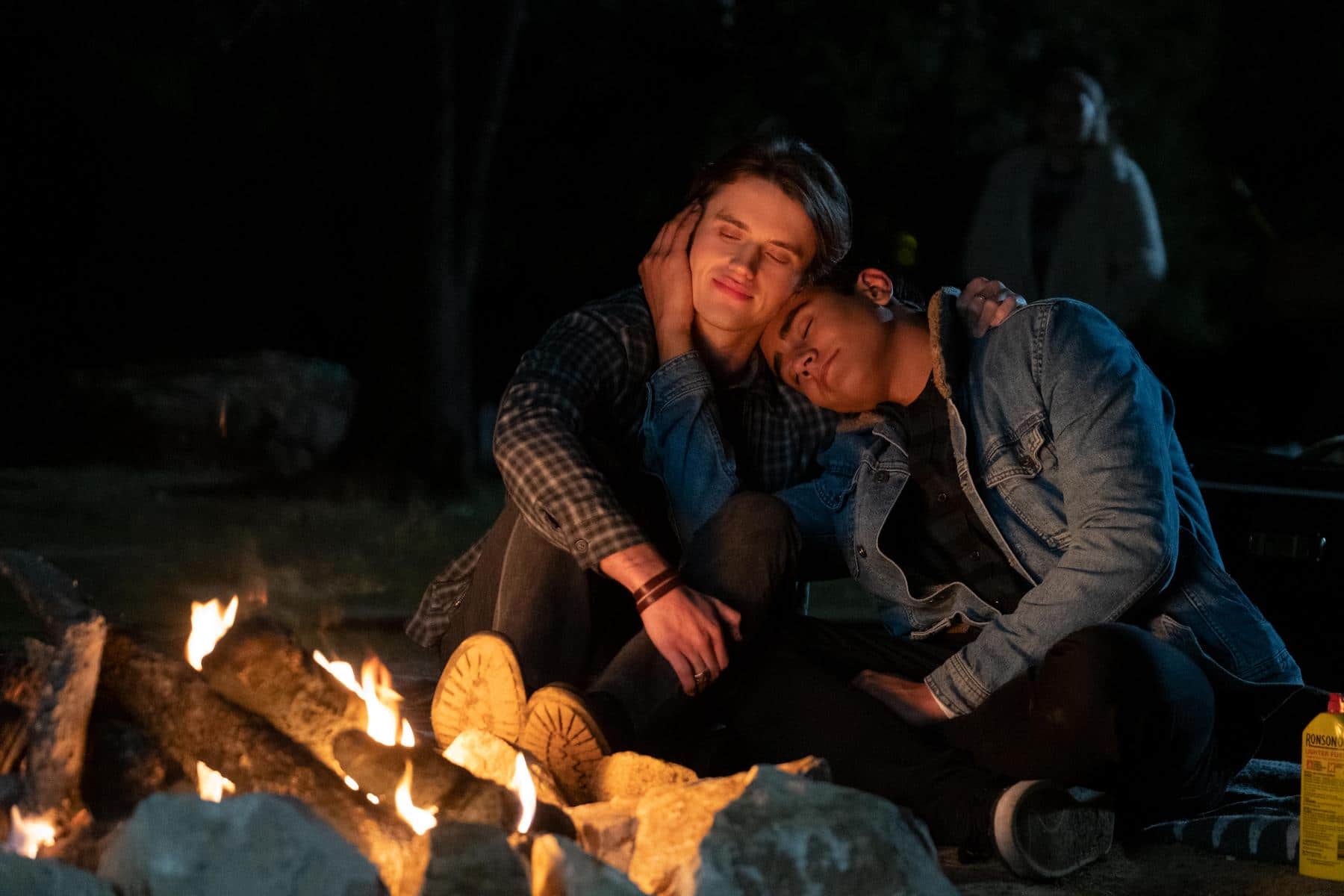How Love, Victor went from Disney fluff to the most vital LGBT+ coming of age drama on screens

Love, Victor star Michael Cimino with George Sear. (Disney)
There was an immediate outpouring of sadness from fans when it was announced that the third season of Love, Victor will be the show’s last.
Online fandoms often overreact to a show ending, but in this case, the response felt entirely justified. For young LGBT+ people, Love, Victor was more than just a television show – it was a lifeline, a window through which they could see their own lives reflected back at them. Three seasons just doesn’t feel like enough.
Still, it’s something of a surprise the show made it as far as it did. Love, Victor famously had a rocky start, and its future often looked uncertain.
Longtime fans will know that Love, Victor is a spin-off from the 2018 film Love, Simon. In 2019, Disney ordered 10 episodes of the show for its then fledgling streamer, Disney+, with the film’s writers Isaac Aptaker and Elizabeth Berger attached as showrunners.
In February 2020, news broke that the show was being shunted to Hulu. A source close to the production told IndieWire at the time that the decision was made because of Love, Victor‘s “mature” themes – despite speculation otherwise, they stressed it had nothing to do with the exploration of Victor’s sexuality.
Love, Victor overcame those obstacles and it became a hit when it finally arrived in June 2020, becoming Hulu’s most-watched drama during its premiere week. It would later debut on Disney’s Star offering, which offers content for more mature audiences, in other countries.
The show instantly garnered a huge following – it helped plenty of queer youth feel seen, and it proved particularly significant for Latinx viewers. It also opened to warm reviews, although some critics felt that it was all a little bit too safe.
“third and final season” pic.twitter.com/vwXy1lqn8v
— love, victor updates (@lovevictornews) February 8, 2022
Moving to Hulu allowed Love, Victor the space it needed to grow
That’s why the second season felt like such a breath of fresh air. The first season of Love, Victor had been made for Disney+, a “family friendly” streaming platform, and that inevitably came with a series of constraints. Because of the move to Hulu, the writers working on the show had more freedom to explore Victor’s sexuality in deeper, more meaningful ways.
One of the ways they did that was by showing Victor and his on-screen boyfriend Benji sleeping together and saying “I love you” for the first time.
That wasn’t the only way Love, Victor matured in its second season – the show’s crowning glory remains its exploration of the struggle Victor’s mother faces in coming to terms with his sexuality.
Isabel, played expertly by Ugly Betty‘s Ana Ortiz, tells Victor that they need to get some rest when he finally pulls the band aid off and announces that he’s gay. They don’t talk about it for weeks afterwards, and it’s abundantly clear that she’s uncomfortable with her son’s sexuality.
It would have been too easy for Love, Victor to tell an endlessly happy story where his parents accept and embrace him unconditionally, but the approach it opted for felt gritty and realistic. It also paved the way for some truly stellar acting from Ortiz, Michael Cimino (Victor) and George Sear (Benji).
By pursuing a storyline that felt more real, Love, Victor provided an important service for its queer viewers – and for their parents. Speaking to PinkNews in 2021, Ortiz spoke of her hope that the show would send out a hopeful message, even when its tackling difficult issues.
“I think there is an opportunity for parents to watch this show with their child, or for their child who might be afraid to come out to say: ‘Hey, there’s a TV show I’d really like to watch together,’ and have that be an introduction of how to do it… I hope the message we can convey is one of hope.”
Too many queer TV shows are ending too soon
Those changes in the show’s approach happened organically, showrunner Brian Tanen told Variety in June 2021. He revealed that the decision to move the show to Hulu was actually a good thing because it allowed them to pursue a more nuanced depiction of sexuality and family dynamics.
“We wanted Isabel to grapple with whether it’s OK to have these conversations with kids. Because of course it is. These are just conversations about who people are,” he said.
Love, Victor still has so many more stories it could explore if it was given the chance to breathe. We now have more queer characters on television than ever before, and LGBT+ representation has improved vastly, but so many queer TV shows are still ending before they’ve really had a chance to thrive.
Pose bowed out after just three seasons, and the very queer Showtime series Work in Progress was recently cancelled two seasons in. In January, Lilly Wachowski hit out at TV executives who claim they’re “committed to diversity” but only look at the “bottom line of a profits and loss spreadsheet”.
“Shows like ours get trotted out to illustrate how networks and studios are soooo committed to diversity but then they get cut before they can establish a viewership,” she said.
Luckily, Love, Victor still has one more season to go – and it’s sure to be a good one. Let’s just hope that whatever queer television show comes next is given more time to build an audience.


